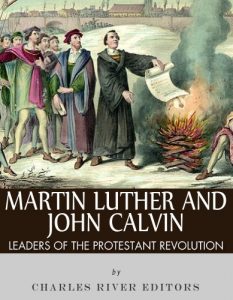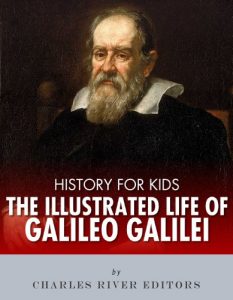*Includes pictures.
*Includes footnotes and a bibliography for further reading.
*Includes a table of contents.
“There is no such thing as a former KGB man.” – Vladimir Putin
Despite serving as the President of Russia from 2000 to 2008 following Boris Yeltsin’s regime, and again since the spring of 2012, remarkably little is known of enigmatic former KGB spy Vladimir Putin, other than the most mainstream life statistics and some minimally revealing fragments of memoirs and anecdotal observations. Putin has served as Russia’s Prime Minister as well, in a calculated political tango with Dmitri Medvedev for the purpose of overcoming term limits for the Russian presidency, thereby allowing him to remain a dominant politician well into the 21st century.
Putin rose to power in 1999, when Boris Yeltsin dismissed his entire cabinet and fourth Prime Minister in seventeen months, Sergy Stapashin. Fearing that he might be prosecuted once out of office, the exhausted outgoing president drew upon the most loyal resource he had by bringing Lieutenant-Colonel Putin, a former Soviet intelligence agent, out of the remnants of the KGB and into the new intelligence network, the Federal Security Service, before offering him leadership of the Kremlin. When Yeltsin needed it most, “Putin pulled out all the stops...bullying the parliament with a threatening speech, and using an embarrassing video tape to discredit the Russian Prosecutor-General.” Thus, at 47 years of age, Putin became the youngest head-of-state in Russia during modern times, even though he had never held public office in his life.
On the face of his administrations, Russia has enjoyed both an economic resurgence and the return of a confident national identity following the break-up of the Soviet Union. Others cite his “systematic efforts to dismantle the country’s democracy and independent media.” Masha Gessen, an author, historian and journalist living in Russia, speaks openly of Vladimir Gushinsky’s arrest, a removal of the most powerful figure in the country’s private media. She speaks as well of suspicious murders, such as that of Anna Politkovskaya, who wrote significant pieces on the crisis in Chechnya, a sensitive subject to Putin’s Kremlin.
With many years spent as a covert figure in the KGB, Putin, to this day, remains a silent tactician who represents the perfect poker face to the outside world, or as one historian put it, “a professional non-descript.” It is unknown to what degree he grieves for the dismantled Soviet system, but he has been described as “a clever and ruthless political operator with a hunger for Russian power, and not much concern for the niceties of democracy or diplomacy.”
In recent years, Putin has startled those from within and without through carefully prepared actions. In the first administration, he reformed the regional system, making it possible for governors to be fired by the president. Those he dismissed were replaced with officers from the old KGB. In a real sense, Russia is still guided by the former agency, at the top and mid-level. During Putin’s early presidency, the KGB led an “aggressive redistribution of assets...re-nationalization of Yukos, once the world’s largest private oil company,” control of railroads, and state corporations (Rosneft, the state oil company, and Rosoboronexport, state defense technology exporter). In daily life, it is said that the simplest transactions have become problematic in present-day Russia - “from getting a driver’s license to getting a license for importing anything...is unpredictable and humiliating. You’re taken for bribes, contracts are broken, there is violence [and] businesses are taken away.” Whatever the realities of Vladimir Vladimriovich Putin’s inner mind, foreign journalists who have covered him for years agree that he can be analyzed by “deduction, more than first-hand observation.”
*Includes footnotes and a bibliography for further reading.
*Includes a table of contents.
“There is no such thing as a former KGB man.” – Vladimir Putin
Despite serving as the President of Russia from 2000 to 2008 following Boris Yeltsin’s regime, and again since the spring of 2012, remarkably little is known of enigmatic former KGB spy Vladimir Putin, other than the most mainstream life statistics and some minimally revealing fragments of memoirs and anecdotal observations. Putin has served as Russia’s Prime Minister as well, in a calculated political tango with Dmitri Medvedev for the purpose of overcoming term limits for the Russian presidency, thereby allowing him to remain a dominant politician well into the 21st century.
Putin rose to power in 1999, when Boris Yeltsin dismissed his entire cabinet and fourth Prime Minister in seventeen months, Sergy Stapashin. Fearing that he might be prosecuted once out of office, the exhausted outgoing president drew upon the most loyal resource he had by bringing Lieutenant-Colonel Putin, a former Soviet intelligence agent, out of the remnants of the KGB and into the new intelligence network, the Federal Security Service, before offering him leadership of the Kremlin. When Yeltsin needed it most, “Putin pulled out all the stops...bullying the parliament with a threatening speech, and using an embarrassing video tape to discredit the Russian Prosecutor-General.” Thus, at 47 years of age, Putin became the youngest head-of-state in Russia during modern times, even though he had never held public office in his life.
On the face of his administrations, Russia has enjoyed both an economic resurgence and the return of a confident national identity following the break-up of the Soviet Union. Others cite his “systematic efforts to dismantle the country’s democracy and independent media.” Masha Gessen, an author, historian and journalist living in Russia, speaks openly of Vladimir Gushinsky’s arrest, a removal of the most powerful figure in the country’s private media. She speaks as well of suspicious murders, such as that of Anna Politkovskaya, who wrote significant pieces on the crisis in Chechnya, a sensitive subject to Putin’s Kremlin.
With many years spent as a covert figure in the KGB, Putin, to this day, remains a silent tactician who represents the perfect poker face to the outside world, or as one historian put it, “a professional non-descript.” It is unknown to what degree he grieves for the dismantled Soviet system, but he has been described as “a clever and ruthless political operator with a hunger for Russian power, and not much concern for the niceties of democracy or diplomacy.”
In recent years, Putin has startled those from within and without through carefully prepared actions. In the first administration, he reformed the regional system, making it possible for governors to be fired by the president. Those he dismissed were replaced with officers from the old KGB. In a real sense, Russia is still guided by the former agency, at the top and mid-level. During Putin’s early presidency, the KGB led an “aggressive redistribution of assets...re-nationalization of Yukos, once the world’s largest private oil company,” control of railroads, and state corporations (Rosneft, the state oil company, and Rosoboronexport, state defense technology exporter). In daily life, it is said that the simplest transactions have become problematic in present-day Russia - “from getting a driver’s license to getting a license for importing anything...is unpredictable and humiliating. You’re taken for bribes, contracts are broken, there is violence [and] businesses are taken away.” Whatever the realities of Vladimir Vladimriovich Putin’s inner mind, foreign journalists who have covered him for years agree that he can be analyzed by “deduction, more than first-hand observation.”












